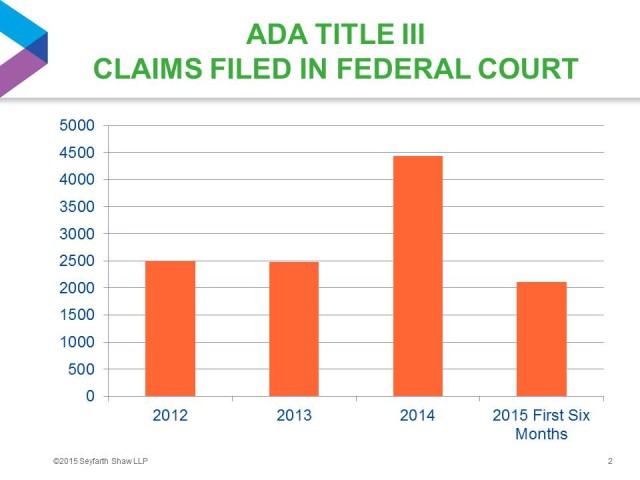Seyfarth Synopsis: In denying Dave & Buster’s motion to dismiss and for summary judgment, a federal judge said that telephonic access might be an alternative to having an accessible website, but cannot decide until the record is much more developed.
 No court has yet decided whether a public accommodation can comply with Title III of the ADA’s equal access mandate
No court has yet decided whether a public accommodation can comply with Title III of the ADA’s equal access mandate
Continue Reading Telephone Access Might Be Valid Alternative to Accessible Website, But Court Needs More




